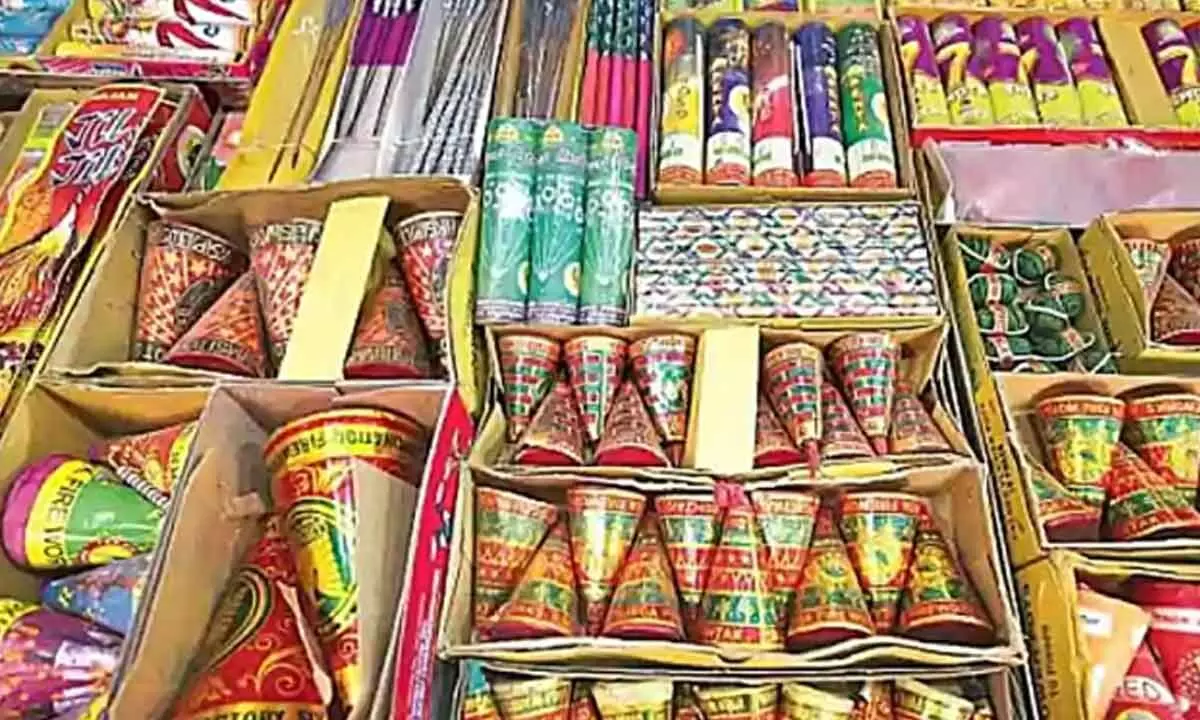WBPCB relaxed firecracker decibel limit succumbing to green-cracker lobby: Experts
Share :

The West Bengal Pollution Control Board's decision to relax the firecracker decibel limit from 90 to 125 was initiated following pressure from the green-cracker lobby in the state, experts in the related field have claimed.
According to them, since the green-crackers formulated by CSIR-NEERI are not meeting the acoustic sound level of 90 decibels, the WBPCC changed their guidelines in respect of the permissible sound limit to 125 decibels.
City’s acclaimed green technologist and environment activist SM Ghosh stated that continuous bursting of such green-crackers will alarmingly raise the air and noise pollution during the festive period which may badly affect not just humans but also birds and animals.
"Green-crackers use alternative chemicals such as potassium nitrate and aluminium instead of magnesium, barium, carbon and other harmful pollutants. Regular crackers also produce 160-200 decibels of sound, while that from green crackers are limited to about 100-130 decibels. Now agreeing that the green-crackers are minimising the air-pollution, we will have to keep in mind that sound pollution also comes under the bigger ambit of environment pollution," Ghosh said.
He said that the worldwide practice of technological up-gradation to control both poisonous emission and excessive noise in all health safety matters should also be adopted in India.
Experts like Ghosh and N. Dutta, feel that WBPCB, relaxing the decibel limit from 90 to 120 has wrongly interpreted the Supreme Court of India order on this count.
They pointed out that while the apex court of the county has fixed the upper decibel limit at 125, it has also given full liberty to individual state governments to set lower decibel limits for minimizing the noise pollution if needed.
"We all know Kolkata is one of the noisiest cities in the world because of high human population density in limited space and excessive vehicular density on six per cent motorable roads against Kolkata’s total geographical area. In normal working days the acoustic sound crosses 80 decibels in most of the city's commercial areas and also in some residential zones because of high pitch vehicular honking and emission exhaust sound apart from public whispering. Considering all the said facts, WBPCB, state environment department and National Green Tribunal took the decision earlier to maintain the fireworks sound level maximum to 90 decibels earlier," Ghosh added.













